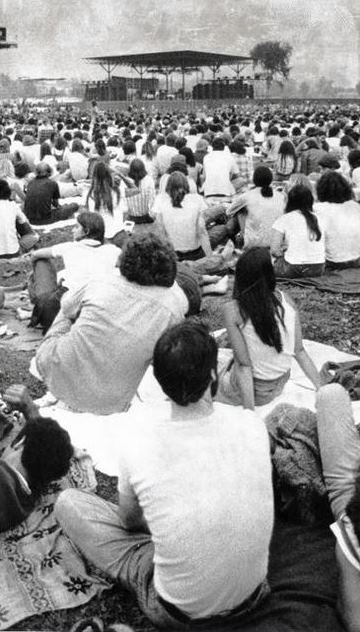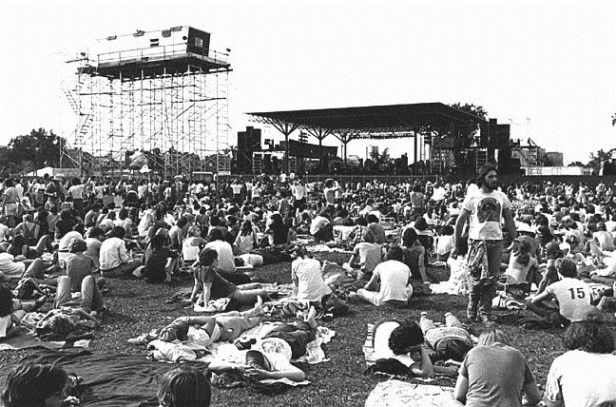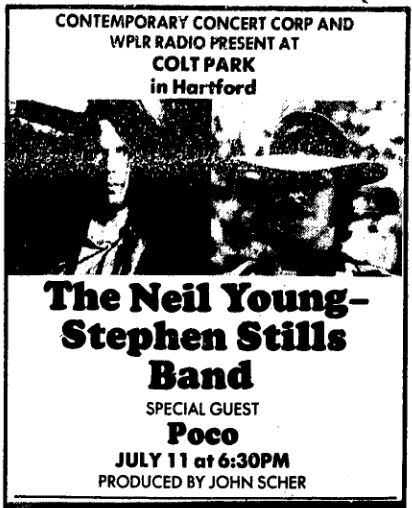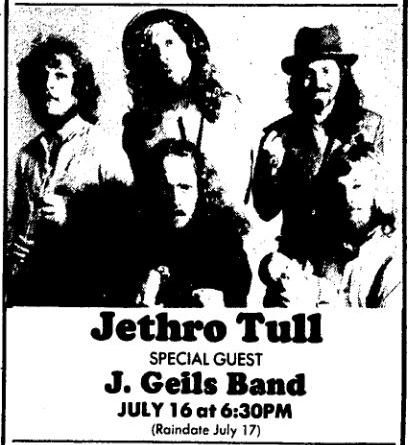By Andy Piascik

Colt Park Concert, July 12, 1976 – Hartford Courant file image
As the summer of 1976 began, Americans immersed themselves in bicentennial-mania. A celebratory blitz reached a fever pitch leading up to the 200th anniversary of the signing of the Declaration of Independence. Advertisers pitched everything (from cars to washing machines) with ties to the American Revolution, to a point where failure to buy something—anything—was to shirk one’s patriotic duty. And every single night for two and a half years, CBS-TV presented its prime time Bicentennial Minute.
The backdrop to this over-indulgent patriotism was one of national crisis, based largely on recent events surrounding Vietnam and Watergate. Many members of the country’s younger generation found it difficult to celebrate America amidst years of vocal opposition to the war in Vietnam, as well as Richard Nixon’s forced resignation just two years earlier because of his involvement in the Watergate cover-up. Adding to the discontent was the fact that Shell Oil bankrolled CBS’s Bicentennial Minutes at a time when Americans held oil companies in great contempt.
Finding Their Own Fun and Heroes
Consequently, many Americans, the young in particular, rejected hierarchical attempts to tell them who and what to celebrate and instead sought out their own heroes. Millions, for example, marveled at the unbelievable skills of 14-year-old Romanian gymnast Nadia Comaneci at the 1976 Summer Olympics in Montreal. That she was from a Communist country (and thus in some eyes an enemy) mattered not a bit. She flew through the air as no one before and much of the world watched in awe.
Many also celebrated rock and roll music, still quite outlaw and emblematic of what became known as the generation gap. And with a series of concerts organized that summer in Hartford’s Colt Park, people in Connecticut got to embrace rock and roll culture perhaps as never before.
The series started with Aerosmith on May 28, followed by Yes on June 19. The summer really kicked into gear, however, with the July 1 show featuring Peter Frampton, whose double album Frampton Comes Alive! was a sensation that year. Incredibly, his performance at Colt Park almost did not happen because Frampton fell off the stage beforehand. There was confusion and concern as people tended to him and it was not clear if there would be a performance at all. Fortunately for the tens of thousands in attendance, Frampton proved able to perform.
Neil Young and Stephen Stills came to Hartford July 11th. While the show was a success, a round of yelling and booing accompanied their acoustic set as the Colt Park venue was a huge, open space and those far from the stage simply could not hear.
Jefferson Starship and Fleetwood Mac
One of the biggest highlights of the series was the fifth show on July 14, featuring Jefferson Starship and Fleetwood Mac. Fleetwood Mac was between its first successful album, Fleetwood Mac, and its even bigger monster album, Rumors. Jefferson Starship, with three members of the late, great Jefferson Airplane at its heart, proved so popular that they and Fleetwood Mac actually rotated opening and closing throughout that 1976 tour. The presence of Grace Slick and Stevie Nicks on the same bill brought a good dose of women’s power to that night’s concert as both (not to mention Fleetwood Mac’s Christine McVie) helped bring greater appreciation for the contributions of women in rock and roll. Later the same week, Jethro Tull and the J. Geils Band played the sixth show of the series on yet another glorious summer evening.
The last show of the series was with the Grateful Dead on August 2, a concert marred by violence between motorcycle gangs and police that resulted in multiple arrests. The violence, while unfortunate, did not seem to overshadow the celebration of music that came before it, however, and for one magical summer, Colt Park in Hartford became the center of rock and roll culture for Connecticut, New England, and beyond.
Bridgeport native Andy Piascik is an award-winning author who has written for many publications and websites over the last four decades. He is also the author of two books.












